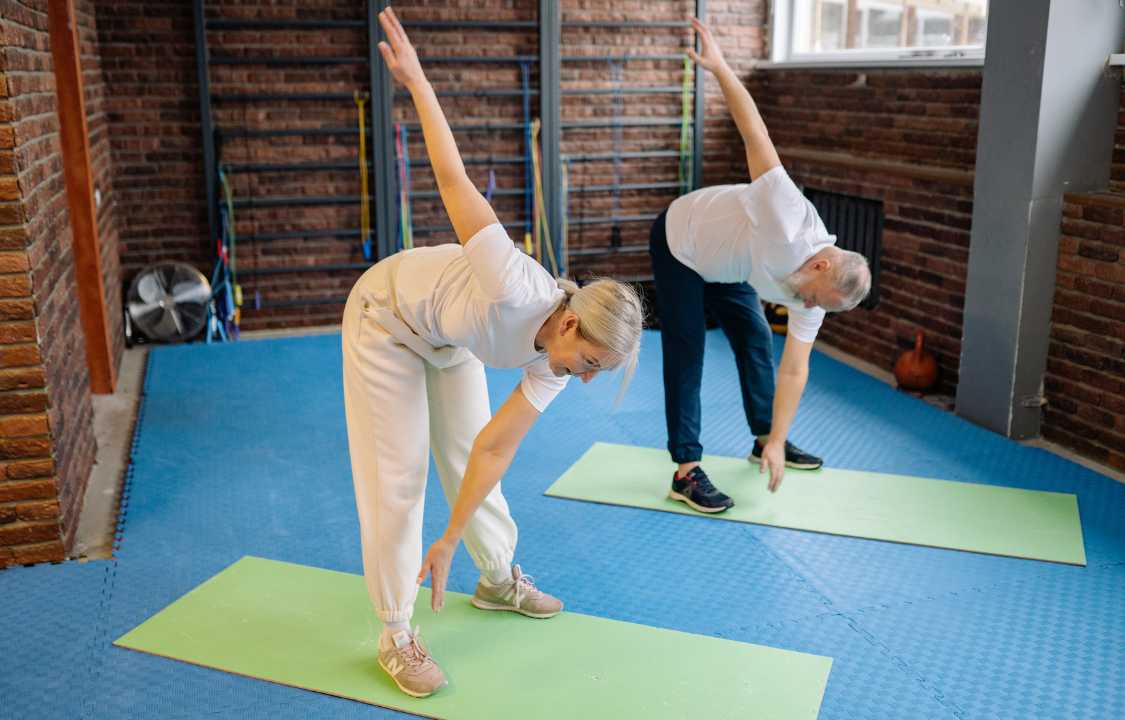Health Benefits, Health Care, Mental Health
Just 20 Minutes of Exercise Each Day Could Lower Depression Risk for Older Adults
Physical exercise has long been recognized as a potent tool in promoting mental health and overall well-being. Recent research, however, has uncovered a remarkable revelation: just 20 minutes of moderate exercise, performed five days a week, may significantly reduce the risk of depression in adults aged 50 and over. These findings challenge the conventional wisdom that advocates for longer and more frequent workouts. Instead, they suggest that older adults can derive substantial mental health benefits from a more manageable exercise regimen.
The study, published in JAMA Network Open, sheds light on a groundbreaking aspect of physical activity and its profound impact on mental health, particularly among older individuals. It offers a compelling perspective that encourages more people to prioritize exercise, potentially revolutionizing how we perceive and approach physical fitness as a means to alleviate depression.
Breaking Down the Research
The study’s lead author, Eamon Laird, PhD, a lifestyle health researcher at the University of Limerick, sought to explore the minimum threshold of physical activity required to combat depression effectively. Traditionally, it has been recommended that individuals engage in at least 30 minutes of exercise per day to support mental health. However, this study aimed to ascertain whether a shorter duration of exercise could yield substantial benefits, making it more attainable for a broader population.
The research focused on individuals over 50 years of age, a demographic particularly vulnerable to depression due to various life changes and challenges associated with aging. The findings were derived from data collected as part of The Irish Longitudinal Study on Aging, involving 4,016 participants over multiple years.
Two key evaluation tools were employed in the study:
1. Center for Epidemiological Studies-Depression Scale (CES-D): This scale assesses the severity of depressive symptoms by examining how frequently individuals have experienced specific mental health-related symptoms in the past week, such as feelings of fear, loneliness, or sadness.
2. Composite International Diagnostic Interview (CIDI): Structured similarly to the CES-D, this interview allows experts to determine whether individuals are suffering from specific mental health conditions, such as major depression, panic disorder, or general anxiety disorder.
The study uncovered several critical insights:
- For older adults without chronic health conditions, engaging in moderate exercise (such as brisk walking) for 100 minutes per week, equivalent to five 20-minute workouts, led to a 16% lower rate of depressive symptoms and a 43% reduced likelihood of experiencing major depression. These results challenge the World Health Organization’s (WHO) recommendation of 150 minutes of exercise per week for adults aged 18 to 64.
- Participants who exceeded 100 minutes of exercise per week experienced even greater mental health benefits. Those who engaged in 120 minutes of exercise daily saw a 23% reduction in depressive symptoms and a 49% lower chance of experiencing major depression.
It’s important to note that the study revealed these benefits extended primarily to individuals without chronic health conditions. Those with conditions such as diabetes, lung disease, osteoporosis, and liver disease may require more exercise to achieve similar mental health improvements.
Understanding the Link Between Exercise and Mental Health
The relationship between physical activity and mental health is well-documented. Engaging in regular exercise can reduce stress, alleviate symptoms of depression, and enhance mood and emotional well-being. The National Institutes of Health (NIH) emphasize the profound connection between exercise and mental health, underscoring its potential to improve mental well-being and reduce the risk of various mental health disorders.
However, this study provides a fresh perspective by highlighting the effectiveness of shorter and more achievable exercise routines, especially for older adults. It challenges the notion that individuals must meet stringent exercise quotas to experience mental health benefits. Instead, it emphasizes that even modest efforts, such as 20 minutes of exercise five times a week, can yield remarkable results.
Implications for Mental Health and Well-being
The implications of this research extend beyond older adults. While the study focused on individuals aged 50 and over, its findings underscore the importance of finding the right dose of exercise for each person, regardless of age. Susan Albers-Bowling, PsyD, a psychologist at Cleveland Clinic, emphasizes the need for individuals to customize their exercise routines to suit their preferences and capacities. Keeping a log of exercise duration, type, and associated feelings can help individuals identify the optimal exercise regimen for their mental well-being.
Furthermore, the study challenges common perceptions of exercise. It suggests that any form of movement can contribute to improved mental health. Walking the dog, taking the stairs vigorously, or engaging in playful activities with family and friends—all of these count as valuable forms of exercise. It’s essential to shift away from the traditional notion of “exercise” as solely high-intensity workouts and recognize the value of diverse movement experiences.
For those who may harbor negative associations with the term “exercise,” reframing it as “movement” or “mindful movement” can be a transformative step. This shift can help individuals view physical activity as a source of joy and self-care rather than a punitive obligation.
In conclusion, this groundbreaking study illuminates the profound impact of short, regular exercise sessions on mental health, particularly among older adults. It challenges preconceived notions about exercise requirements and encourages individuals of all ages to find their ideal exercise dosage. By prioritizing mental well-being through achievable movement goals, individuals can harness the therapeutic power of exercise to combat depression and enhance their overall quality of life.

